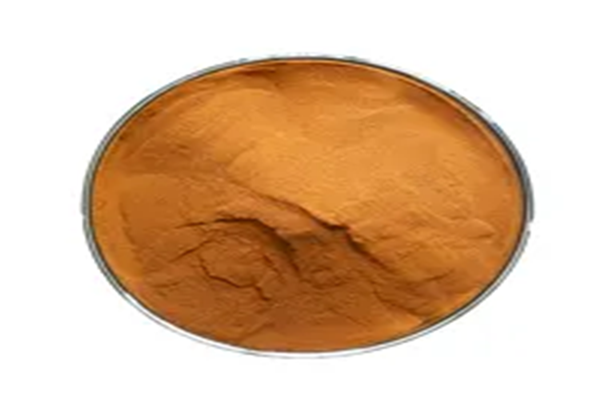PRODUCTS
HIGH-QUALITY CHEMICAL TECHNOLOGY MANUFACTURER
Professional concrete suppliers

More Professional
Xingzhenghe is one of the largest manufactures of superplasticizers. Our Annual output is over 150,000 Mts.

Quality trust
Products have been sold to more than 60 countries, such as South Korea, Japan, Vietnam, Indonesia, Australia, Canada, Russia, Saudi Arabia etc.

Fast delivery
warehouses are set up in major ports for more timely delivery , in Tianjin,Qingdao,Shanghai, Guangzhou,and other places with branches (offices) and foreign trade transit warehouse.

Fulvic acid
Fulvic acid contains carboxyl group, phenolic hydroxyl group and other functional groups, and has strong complexation, chelation and surface adsorption capacity, which can reduce the loss of ammonium nitrogen.
Fulvic acid
Fulvic acid contains carboxyl group, phenolic hydroxyl group and other functional groups, and has strong complexation, chelation and surface adsorption capacity, which can reduce the loss of ammonium nitrogen. Increase the moving distance of phosphorus in soil, inhibit the fixation of water-soluble phosphorus in soil, transform ineffective phosphorus into available phosphorus, and promote the uptake of phosphorus by roots; Fulvic acid can absorb and store potassium ions, and increase the content of available potassium, especially the effect of potassium fertilizer is particularly obvious. The results showed that fulvic acid could increase the utilization rate of nitrogen, phosphorus and potassium in fertilizer by more than 20%.
- Synergistic effect on nitrogen fertilizer
The nitrogen volatilization rate of ammonium carbide decreased from 13.1% to 2.04% in 6 days by adding fulhuic acid. In the field test, the fertilizer effect of ammonium carbide lasted more than 20 days, and ammonium fulvate could reach more than 60 days. Adding fulvic acid, especially nitro fulvic acid, to urea can generate urea complex, slow down urea decomposition, prolong fertilizer efficiency, reduce loss, increase urea utilization rate by 30%, and increase after-effect by more than 15%. The results showed that the nitrogen utilization rate increased from 30.1% to 34.1% and the nitrogen absorption rate increased by 10% after adding fulvic acid.
2, the synergistic effect of phosphate fertilizer
The use of fulvic acid to protect water-soluble phosphate fertilizer or phosphorus based compound fertilizer to reduce the fixation of phosphorus; Promote the absorption of phosphorus and improve the utilization rate of phosphorus fertilizer. Fertilizer efficiency test showed that adding 10-20% fulvic acid to normal calcium, heavy calcium or ammonium phosphate could increase fertilizer efficiency by 10-20% and phosphorus absorption by 28-39%. Radioactive phosphorus tracer test was used to determine the utilization rate of phosphate fertilizer. After adding fulvic acid, the utilization rate of phosphate fertilizer increased from 15.4% to 19.3%, that is, the utilization rate of phosphate fertilizer increased by a quarter.
3, the synergistic effect of potassium fertilizer
The acidic functional group of fulvic acid can absorb and store potassium ions, reducing the amount of potassium loss with water in sandy soil and strongly eluvial soil. Fulvic acid can prevent the fixation of potassium in clayey soil and increase the amount of exchangeable potassium. Fulvic acid can dissolve potassium-containing minerals, slowly increase the release of potassium and increase the content of available potassium in soil. Fulvic acid can also use its biological activity to stimulate and regulate the physiological metabolic process of crops, increasing the amount of potassium absorption by more than 30%.
4, promote the absorption of micro-fertilizer, effectively solve the deficiency disease
The trace elements in fulvic acid chelate form the chelate of fulvic acid, which is mobile and easily absorbed by crops, and is transferred to the deficient parts of crops to effectively solve the deficiency disease.
- Conserve water
Fulvic acid is a colloidal organic matter, it can make the soil loose, adsorption water, breathable moisture, moisture, drought prevention, so that the soil has good water, gas, heat conditions, suitable for seed germination and seedling growth, improve saline-alkali land
- Improve saline-alkali land
Fulvic acid has small molecular weight and high activity, which can adsorb harmful cations in the soil, thereby reducing the concentration of salt in the soil, reducing the harm of salt to seeds and seedlings, and improving saline-alkali land
7, drought and cold resistance
Spraying fulvic acid on plant leaves can make plant stomata close, reduce water transpiration, deep color of fulvic acid, and help to absorb solar energy; When fulvic acid is decomposed by microorganisms, it will release heat, which can increase the ground temperature and thus play the role of cold resistance
8, pest resistance
Fulvic acid can increase the activity of enzymes in plants and increase the resistance of entada body
- Prevent heavy metal pollution
Fulvic acid participates in the ion exchange reaction in the soil, adsorbing heavy metal ions in the soil back to prevent them from entering the biological cycle.